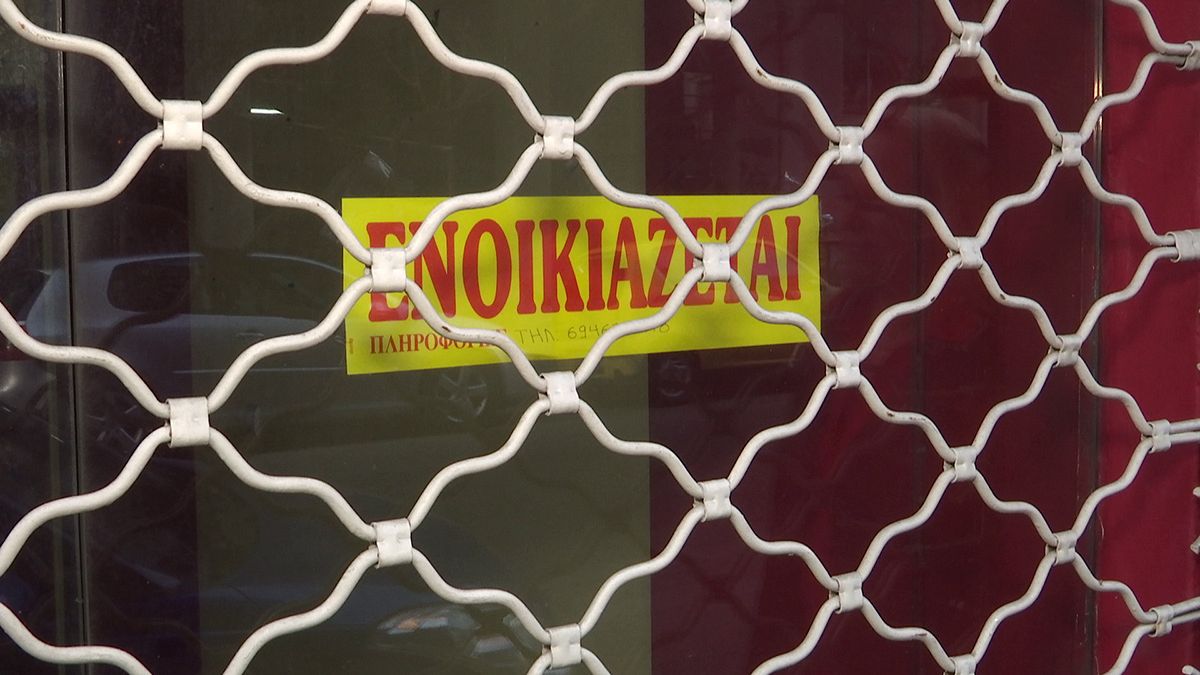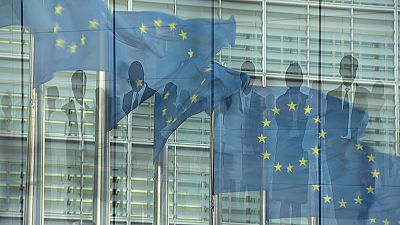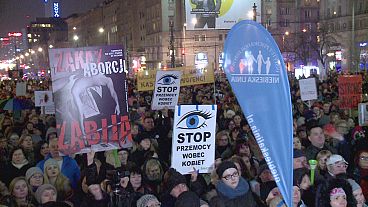There were a lot of people who were very skeptical about being in the EU because they thought it was all about politics and not funding projects that actually could help people.
Some of the district of Aghos Dimitrios in Athens was once an abandoned plot of land now it’s been turned into allotments for urban farming.
Maria Androutsou is mayor of the district. Like throughout Greece, her constituents have been hit hard by the eurozone crisis of budget cuts and austerity measures. Unemployment is at 30 percent.
Most of the people cultivating the plots on the allotments are unemployed. They grow their own products and even donate some to the local food bank.
“I was a cleaning woman in a pharmacy and lost my job four years ago. Whom do I blame for this situation? I blame both the past and previous governments especially the present government that they see that we are going from bad to worse and they keep going towards the worse,” one unemployed woman told euronews.
The project is partially funded by the EU. It has paid for specialists to help these people learn how to farm. It’s also helped remind Greeks of the benefits of being an EU member.
“This area got assistance for its infrastructure from the EU and that made a lot of people change their minds about Greece being in the EU. There were a lot of people who were very skeptical about being in the EU because they thought it was all about politics and not funding projects that actually could help people,” opined Mayor Maria Androutsou.
Funding projects that help people. This has been a founding goal of the EU since it was created 60 years ago. And Greece has been no exception. Since it joined the EU in 1981, it has received billions of euros in funds. Even today it receives six times the amount it contributes.
A nursery school euronews visited is another EU funded project to the tune of 700,000 euros. While the municipality finances the school’s daily running, the mayor says without EU funds, they never could have built this school. But she understands why many Greeks believe a lot of EU funds have been wasted or mismanaged. She says they need more scrutiny.
“It’s about how the money was used. Were we using it for development projects? That means they create work or jobs and support the national economy. Or did the money go to projects that were just “window-dressing” meaning that the benefits were short-term and of no use long-term?” questioned the mayor.
For many Greeks, these so-called window-dressing projects are best personified by the Olympic Games of 2004.
EU funds and low-interest bank loans as a eurozone member, were used to help transform Athens with new Olympic venues but also with a brand-new metro, roads and a new airport.
But like this graphic shows, Greece’s GDP rose once it joined the EU and later the Euro, only to meet a dramatic decline when the Euro crisis hit. The spending spree had come to an end.
“On this street alone, more than 70 shops and businesses have shut their doors. Gone are the glory days of new investments and cheap loans thanks to a eurozone membership. But what happened? What went wrong? And who, if anyone is to blame?” reported euronews’ correspondent, Valerie Zabriskie from Athens.
Who is to blame for Greece’s staggering public debt which led to three consecutive EU-IMF bailouts in exchange for reforms and austerity? Multi-billion dollar loans that most Greeks and even most Europeans believe the country can’t pay back unless there is some debt-relief.
George Papaconstantinou was Greece’s Finance Minister during the first bailout in 2010. He says both Greece and Europe are to blame for the “euro crisis“http://www.telegraph.co.uk/business/2017/02/22/greece-will-need-fourth-bailout-due-unsustainable-debt-pile/. But he also believes the euro will survive, even if it takes some convincing.
“The irony and problem that we are all facing at the moment is that economics tell you that you need to go towards closer union and complete this construction which was created ten years ago. And the politics goes in the complete opposite direction. The politics is much more nationalistic and much more every country for itself.
The real question is how do you reconcile the two? How do you manage to convince the citizens that the only way for the Eurozone to survive is for a deeper integration and more robust institutions than what we have at the moment? That’s what is going to be tested in 2017 in many European elections.”
Taking the difficult decisions to survive – not only a eurozone crisis but also a refugee crisis which has helped ignite not only the growing flames of populism throughout Europe but also a growing euroscepticism among some EU members.
And Greece, as the main port of entry, has borne the main brunt of helping those seeking refugee in Europe. Last year alone, it’s estimated that 46 percent of the refugees landed in Greece.
At a centre in Athens, refugees, mostly Syrians, are waiting to be relocated in other EU states.
“I think that Brussels and certain European states have shown their solidarity to Greece in terms of the refugee crisis. But I think that in the future we need to balance this out further because it cannot be the case for any European that is receiving migrants and refugees because they are on the border to have to deal with this issue by themselves,” concluded Nikos Christakos, ‘Nostos’ NGO.
While the majority of Greeks have shown incredible resilience in the wake of the refugee crisis and especially the eurozone crisis, the burden is taking its toll. A recent survey revealed that 71 percent of Greeks now have an unfavorable opinion of the European Union.



